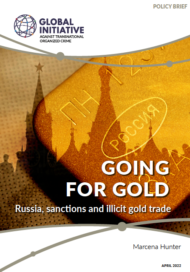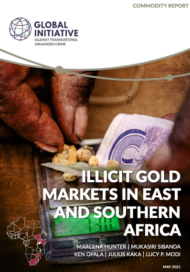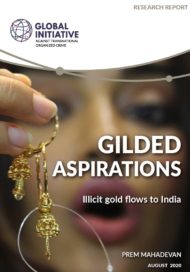Posted on 07 Apr 2022
A stranglehold of sanctions imposed by the UK, US and EU on Russia following its invasion of Ukraine has greatly restricted the ability of Moscow and other sanctioned entities to access and move finances.
Their bite is only expected to grow deeper, raising questions about how Moscow and other targeted entities, like Russian individuals and companies, will generate funds, move money internationally and access foreign exchange going forward. Gold and illicit networks are likely to be part of the answer.
As it finds itself increasingly cut off from foreign currency and financial systems, illicit gold markets and gold laundering are one way Moscow (and other sanctioned actors) could seek to generate profits and move finances across borders. Gold can be physically moved around the world outside of digital financial networks, including SWIFT financial messaging, making it difficult to track. Gold is also easily laundered in global markets through not declaring or disguising its origins. Moscow could use foreign exchange reserves accessed through illicit gold markets for imports, to fund Russian military operations or to compensate sanctioned Russian oligarchs for their losses. Separate from Moscow, other sanctioned actors may also make use of criminal networks to launder and smuggle gold.
The wheels of the global illicit gold market are well oiled and offer a variety of economic options to an increasingly beleaguered Moscow, along with other sanctioned actors (See: Illicit gold markets in East and Southern Africa, GI-TOC, 2021). It is therefore critical to understand the potential for using criminal networks to move and launder gold to evade sanctions. Developing targeted responses to tackle abuse of gold markets will not only be critical to maximize the effectiveness of responses, but also to minimize unintended harms.




